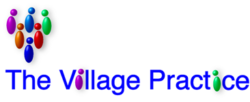Our home visit policy is based on the GMS contract, local LMC guidance, RCGP and BMA guidance.
Although a traditional part of general practice, home visits are time consuming. Please remember that several patients can be seen in the practice in the time that it takes to make one home visit. So please help us to help you and our other patients by visiting the surgery whenever possible.
Please note we also have better lighting, equipment, facilities, chaperones and access to medical notes available to aid your management in the surgery as well as performing tests and diagnostics.
Home Visits are reserved for the following groups of patients:
- Terminally ill;
- Housebound;
- Patients who are severely ill in bed;
Please request visits before 11am whenever possible as this allows the Duty Doctor to assess the request for necessity and urgency so that it can be appropriately managed. In some situations the Duty Doctor may arrange assessment by another member of the community team (District nurse/neighbourhood team)
Please note it is the Village Practice GP Team’s decision as to whether a home visit is needed.
The following ARE NOT valid reasons to perform a home visit:
Transport issues for the patient
It is not the GP practice responsibility to arrange transport, or to perform home visits because the patient has difficulty arranging transport. In these circumstances patients should seek transport help from relatives, friends, or taxi firms.
Childcare issues for a patient
If a patient has difficulty arranging for someone to care for their children whilst attending appointments, the patients are welcome to bring their children to the surgery.
Poor mobility
Whilst it is understood that having poor mobility is inconvenient and unpleasant, GP surgeries are designed to cater for patients with restricted mobility. If patients are able to attend appointments at other healthcare settings, then they should also be expected to attend appointments in GP surgeries.
A unwell child
It is in the best interest of the child to attend the surgery where they can be properly assessed and treated. The clinician can make a more informed clinical judgment when seeing the child in surgery.
If a parent believes that the child is too unwell to travel to surgery, and is a medical emergency then it would be advisable for them to seek help from the emergency services by calling 999.
